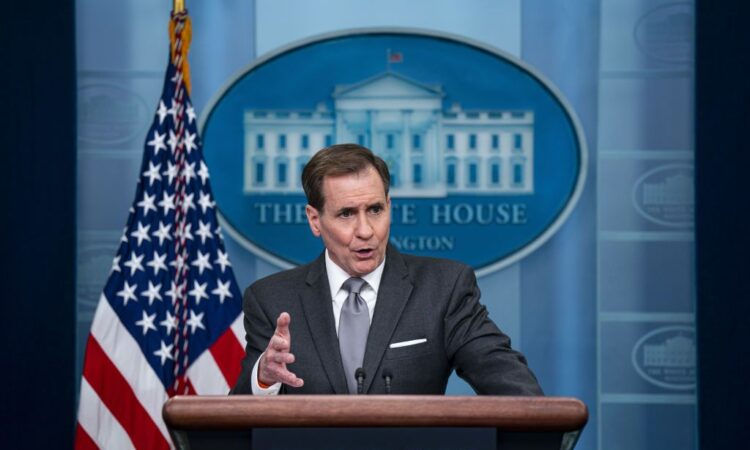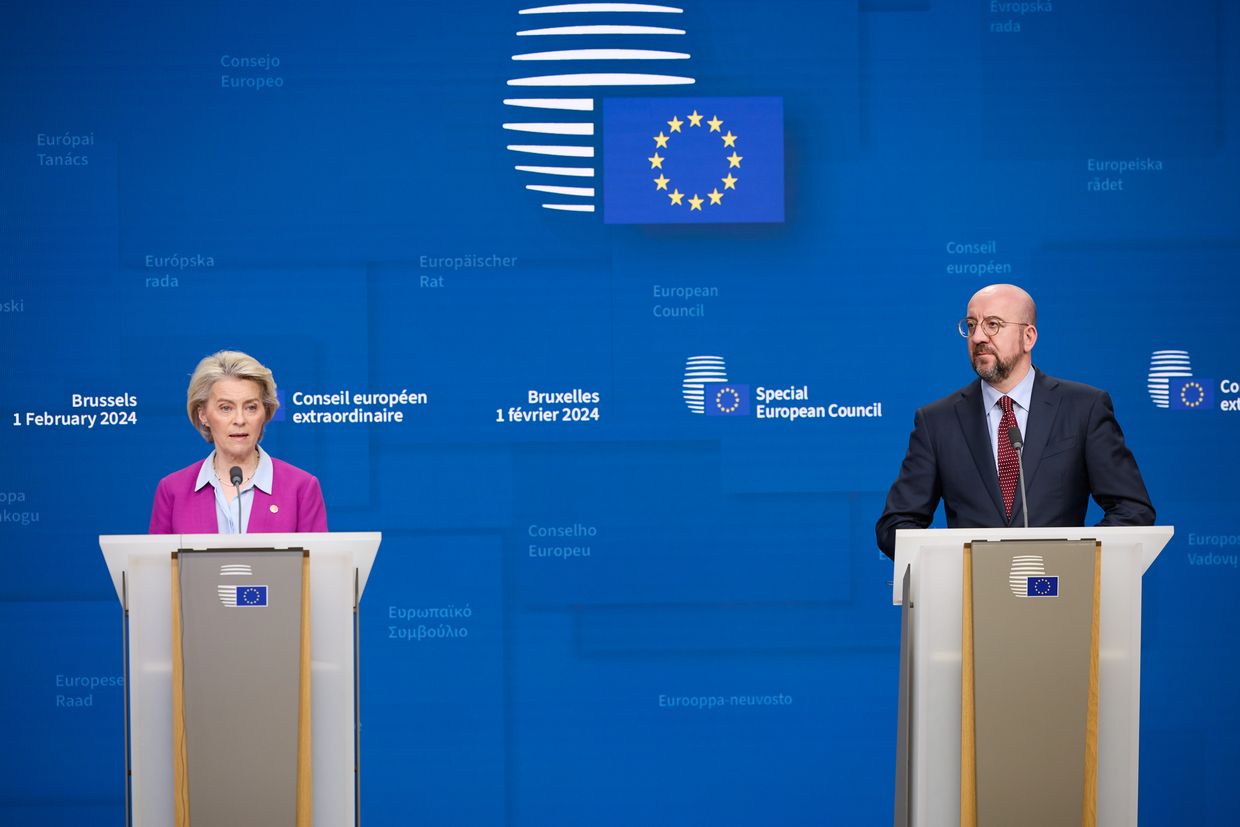
The U.S. welcomed the EU’s decision to approve the 50 billion euro ($54 billion) Ukraine Facility but stressed that this funding is no substitute for the U.S. military aid, U.S. National Security Council spokesperson John Kirby said on Feb. 1.
After months of delays and obstructions by Hungary, all 27 European leaders approved the four-year funding support for Kyiv during a Feb. 1 summit.
In turn, roughly $61 billion in U.S. assistance remains stuck in Congress since autumn 2023 due to political disputes largely unrelated to Ukraine.
Kirby noted that EU aid can help Ukraine alleviate financial pressure but is not designed as security assistance.
“But it’s not a substitute for American leadership when it comes to security assistance. And that is why it’s so critical for us to continue to urge Congress to pass that national security supplemental,” Kirby added.
EU assistance is composed of grants and loans aimed at helping the Ukrainian state to function through stable and predictable financing amid the ongoing full-scale war with Russia.
The White House’s supplemental funding package of $110 billion, containing $61 billion in economic and security assistance for Kyiv, has failed to break the gridlock in Congress due to disputes on border security measures attached to the bill.
A bipartisan group of senators is set to unveil a compromise deal on Ukraine and border security next week. If passed, it will move to the House of Representatives.
The agreement is likely to face stiff opposition from House Republicans, where Speaker Mike Johnson reportedly warned it would be “dead on arrival.” House Republicans have demanded even stricter measures than their colleagues in the Senate, with some advocating against aid for Kyiv in principle.
Ukraine war latest: EU leaders agree to $54 billion funding for Kyiv; Russian ship sunk near occupied Crimea
Key developments on Feb. 1: * All 27 EU leaders agree on 50 billion euro ($54 billion) aid package for Ukraine * Military intelligence: Russian missile ship sunk off occupied Crimea. * Foreign volunteers killed by Russian attack in Kherson * White House won’t discuss separating aid to Ukraine f…







